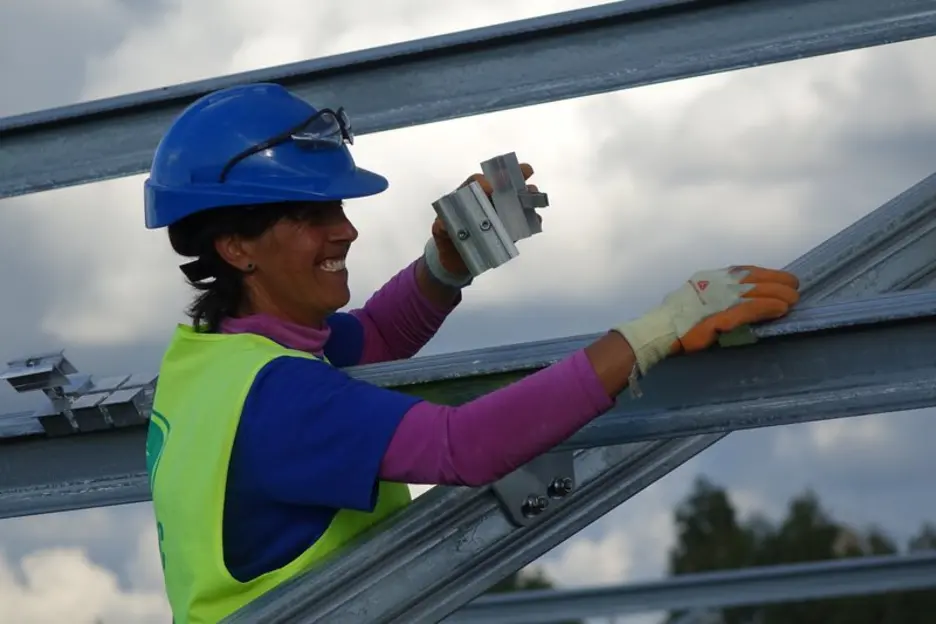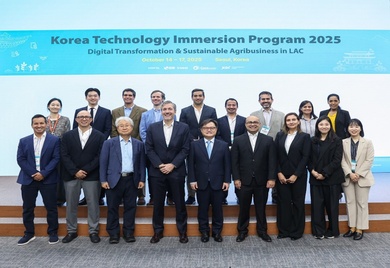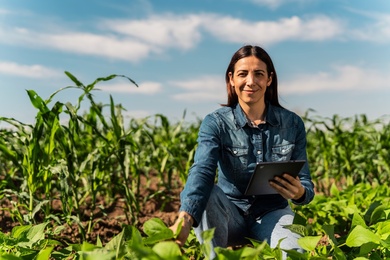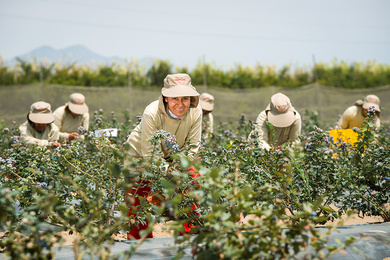No Women in Renewable Energy? Look Again.

[caption id="attachment_4134" align="alignleft" width="502"] Solar PV project by Tecnova in Uruguay[/caption]
Solar PV project by Tecnova in Uruguay[/caption]
For most people, renewable energy projects evoke images of isolated locations, long hours, heavy lifting in the hot sun and complicated mathematical instruments. They often think women don’t want to work in construction. Or they doubt that these projects could have a gender impact.
Changing the Conversation
What could we do differently? We sought to change the conversation by getting our clients to set the example. Our clients could help create the pipeline and infrastructure so that local women in Latin America and the Caribbean could gain the skills and experience for this burgeoning industry so critical amid climate change. We also sought to demonstrate that women were willing and able to work on construction projects.
How C2F Clients are now leading on Gender Inclusion
Grupo Ecos, developers of the Divisa Solar project in Panama, were the first C2F clients to develop an internship program specifically for female students on the STEM and finance tracks. The clients partner with local universities to give guest lectures to students about the energy sector – classes that are overwhelmingly filled with young men. By March 2015, Divisa had recruited two female interns with the goal of training four per year.
Casablanca y Giacote, a solar PV project by Tecnova and Sky Solar in Uruguay, partnered with that country’s Universidad del Trabajo (UTU) and the Instituto Nacional de Empleos y Formación Profesional (INEFOP), which developed a program to train local personnel in the assembly of solar photovoltaic projects. These institutes set a target of 40 percent participation of women in their programs – a target they met.
Optima Energía in Mexico is transforming corporate culture. Contracted by municipal governments in Mexico to replace incandescent street lights with energy- efficient LED street lamps, the company is the first IDB private sector borrower to sign on to the CEO Statement of the United Nations Women’s Empowerment Principles. In so doing, Optima commits to concretely identifying and implementing measures to promote gender diversity and talent development opportunities for women in the company. In addition, Optima Energía is embarking on a gender certification program through the Mexico’s Norm on Labor Equality for Men and Women, to ensure that it is an equitable and inclusive workplace that attracts the best employees. Finally, the company is implementing an internship program in Monterrey, Mexico, committing to the goal that at least 50 percent of interns recruited each year will be women.
Lasting Development Impact
Our clients are increasingly conscious of their companies as vehicles to promote innovative, inclusive local development and create new employment opportunities in the surrounding communities. And that’s why the focus on training and internships for women is so important –these programs provide the experience, qualification and skills women need to be more visible in the industry. Long term change – more women in leadership in solar and wind energy in Latin America and the Caribbean – begins with the first small step.
For the IDB’s C2F clients, that first step is an investment in the professional development of young women within the sphere of influence of our projects. We believe this will lead to a more equitable renewables sector long after the C2F projects have been completed.
LIKE WHAT YOU JUST READ?
Subscribe to our mailing list to stay informed on the latest IDB Invest news, blog posts, upcoming events, and to learn more about specific areas of interest.
Subscribe



